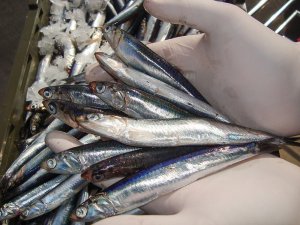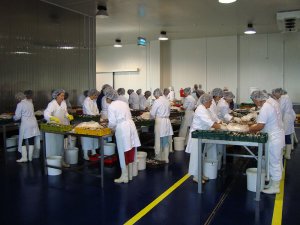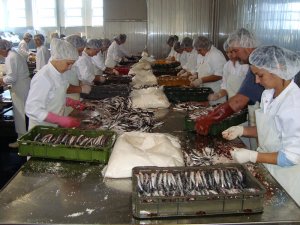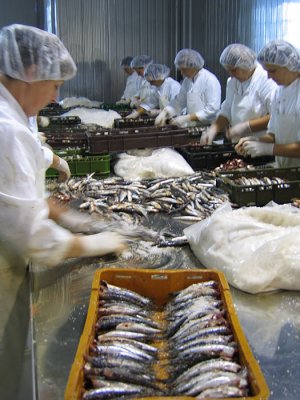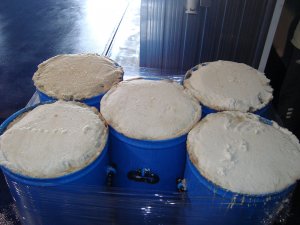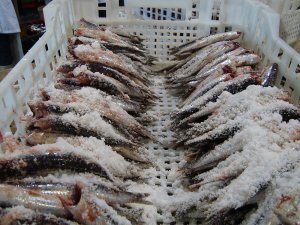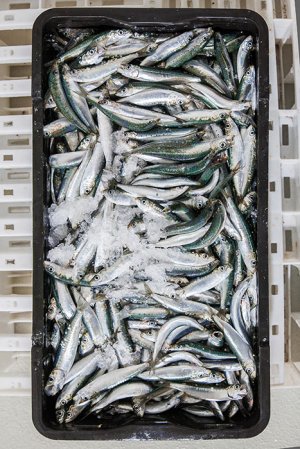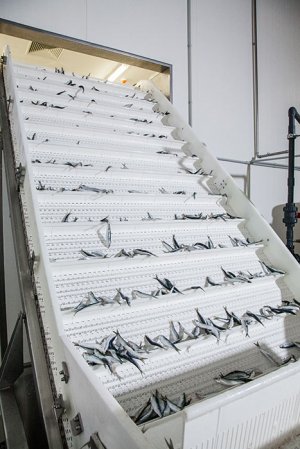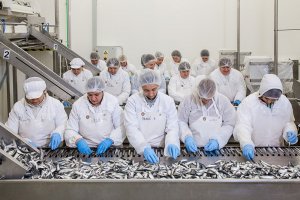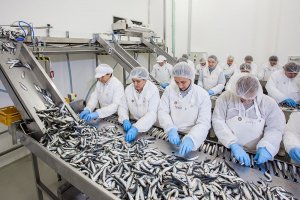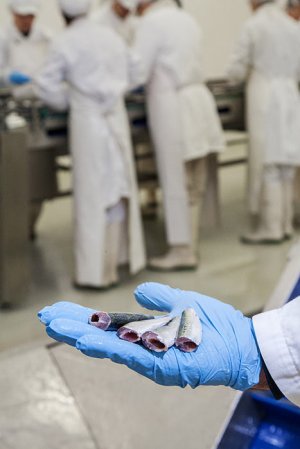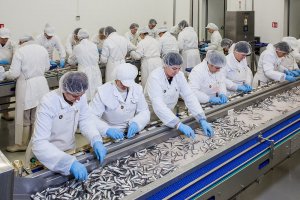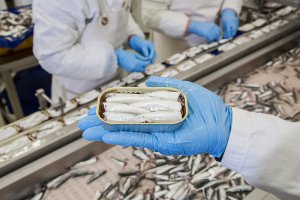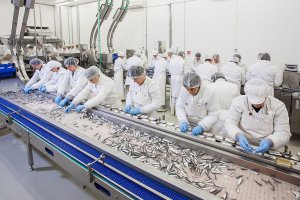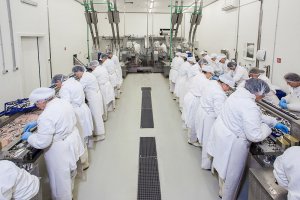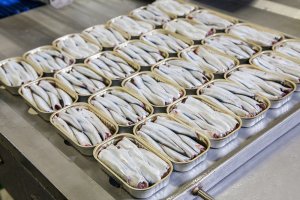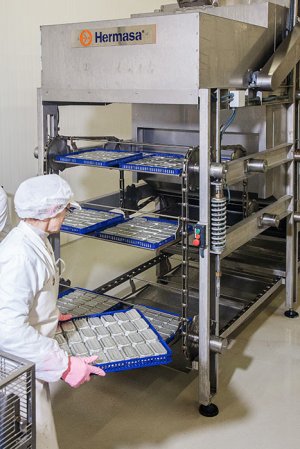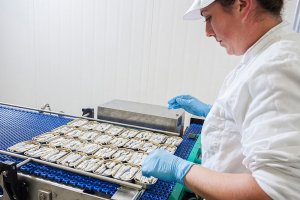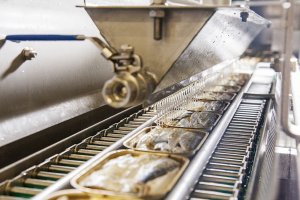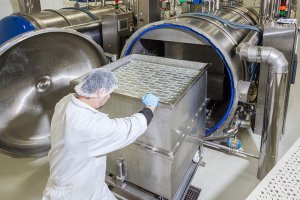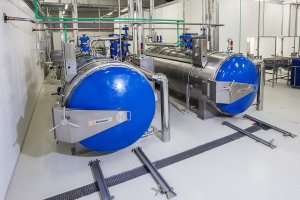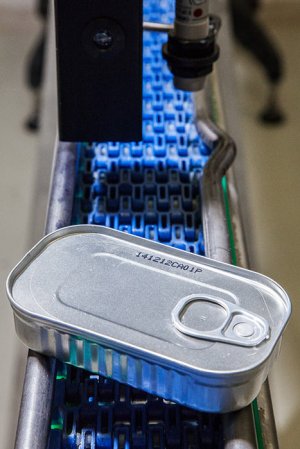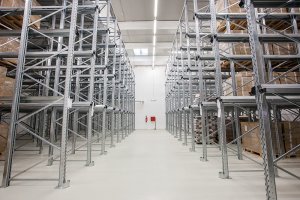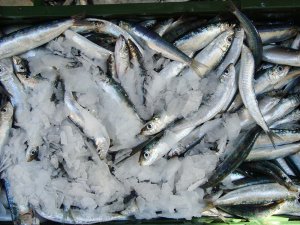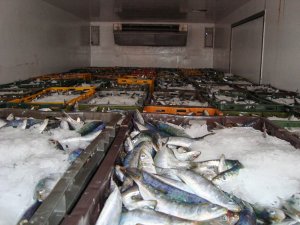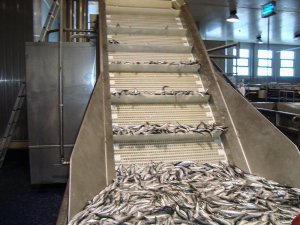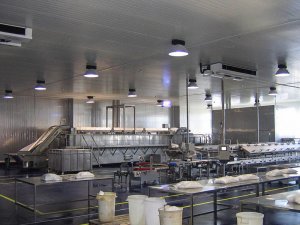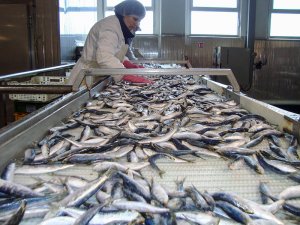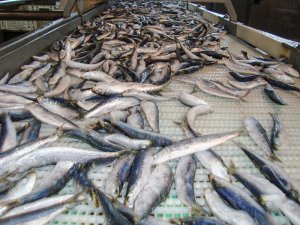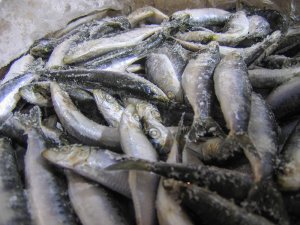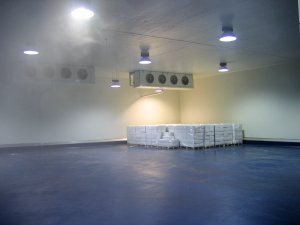Salting
By the technological process of salting, fresh anchovies or sardine caught on that very day are processed, and they are covered with ice on the boat and transported by refrigerated trucks to the production plant, where the processing starts immediately. Processing is carried out in controlled conditions, in order for the raw material to keep its original quality and freshness. Cleaning of the fish, head and the gut, and salting are performed manually for better utilization and quality of the product. Salted products are stored into chambers with the average temperature up to 17°C, where the controlled ripening process occurs. We process 2.500 tons of salted anchovies in plastic barrels, and in tin cans of 5 and 10 kg annually. Salted anchovies can be prepared according to the desired recipe of the customer, with the possibility of control by his technologists.
Canning
“Adriano premium” is a limited series of canned sardines, which guarantees supreme quality and richness of natural taste. The “premium” designation emphasizes that the production is based exclusively on fresh Adriatic sardines caught on the day of canning. Packing of sardines with head, intestines and tail removed is carried out manually for the purpose of obtaining a high quality product. The “Adriano premium” product can be adapted to the needs of the market, both, by the type of cans, and by the size of the fish. The size of sardines we produce is from 30 to 80 pcs./kg, i.e. from 4 to 12 pieces in a can, depending on the type of the can. We can produce 25,000,000 cans of the type: EUROCLUB 90 g, 115 g, 120 g, and DINGLEY 115 g and 125 g annually. The products comply with the very high standards of the market.
Freezing
The technological process in the freezing line is carried out according to the IQF system with the capacity of 6 tons per hour, which means that the fish is frozen individually in salted water (brine) where it reaches the temperature of –18 °C at the bone, and it goes into the tunnel to –40 °C, whereby it gets the glazing that protects the product from drying out. By this system of freezing, the fish keeps all its natural qualities. The whole freezing process, from entering of the raw material into the line until packing, lasts 15 minutes at the most. A short freezing path is exceptionally important in order to avoid forming of larger ice crystals within the product that have a considerable effect on quality. We can produce 6,000 tons of small pelagic fish annually, in various packages and dimensions, such as cardboard boxes or PVC bags.
